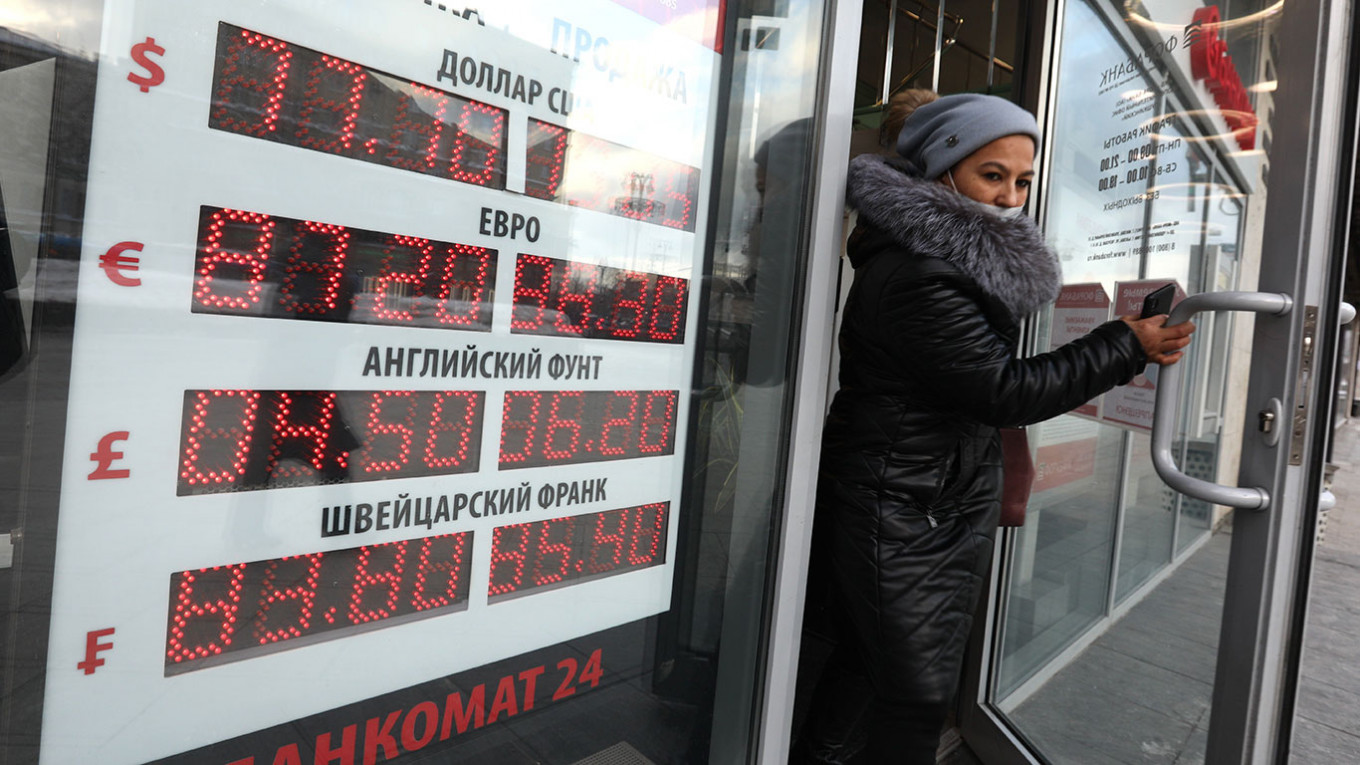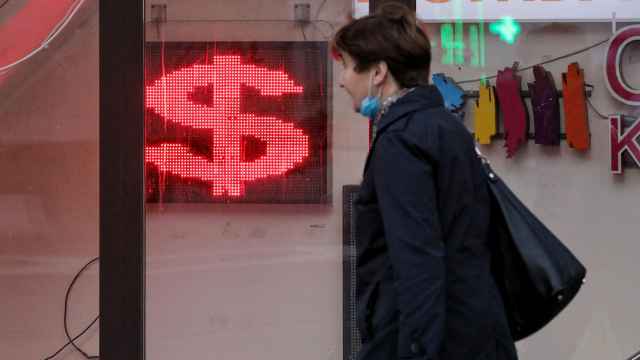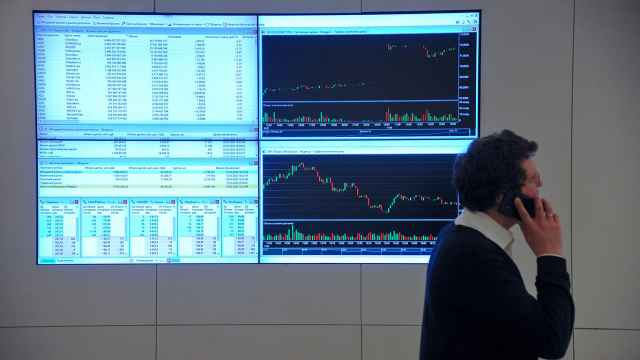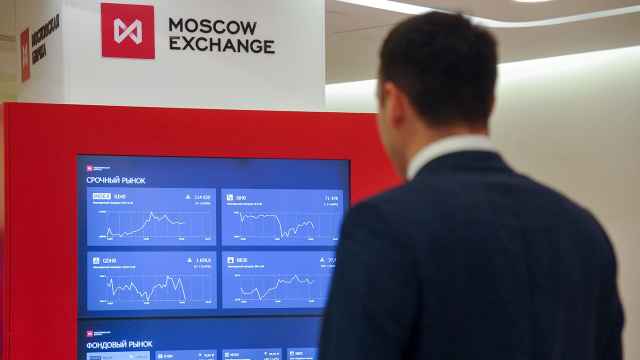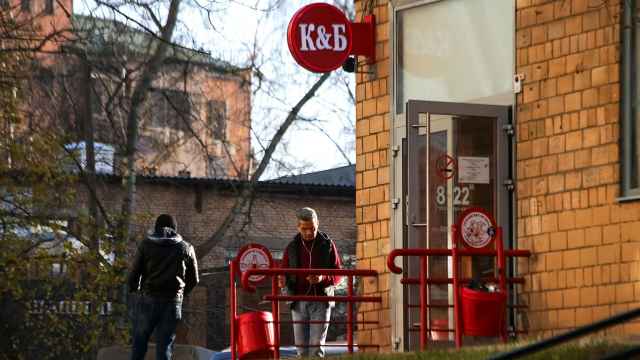When the Russian ruble sank to 80 against the U.S. dollar in January amid one of the most intense periods of volatility for Russia’s financial markets in years, tour guide Jack Sheremetoff was not fazed.
“It’s not a surprise — I managed to buy dollars at 73 to the ruble so I’m quite content,” he told The Moscow Times at the height of the market panic. “I have no savings in rubles — those who have money keep everything in dollars or crypto.”
The ruble has since recovered some of its losses, and Russian stock markets have also climbed higher after several days of frantic selling sparked by fears of a Russian invasion of Ukraine and the imposition of tough economic sanctions against Moscow.
But while institutional investors were panic selling — pushing Russia’s benchmark MOEX Index to its lowest reading in a year — ordinary Russians were more sanguine. Like Sheremetoff, many have long stopped storing their savings in rubles, having been burned by previous crises and devaluations, most recently in 2014. Some sensed an opportunity to turn a quick profit amid the sell-off.
Market statistics show Russian retail investors poured a record-breaking 101 billion rubles ($1.3 billion) into Russian shares during January.
“These numbers put to rest concerns that retail investors might have capitulated during the recent sell-off,” said Andrey Kuznetsov, a strategist at state-owned investment bank VTB Capital, who analyzed the numbers.
“Institutional investors … were concerned that retail investors might give up on equity investing since there was a moment at which the sell-off wiped out all the spectacular gains of 2021. Yet, in reality, the opposite has happened. Retail investors brought a record amount of cash into the market,” he added.
A recent report by Sberbank also found evidence of this counterintuitive investment approach. On days when the Russian stock market fell, Russians were net buyers. When the stock market was up, they typically sold off.
“On all the days of extreme moves, retail investors were buyers and, as a rule, the bigger the drop in index, the stronger was retail investors’ demand,” added Kuznetsov.
This often puts Russians on the other side of the trade from large foreign institutional investors — the international pension and investment funds that hold around 70% of the so-called “free float” of Russian listed companies. As Russian retail investors only own around 12%, they are outweighed, meaning the headline market moves are dictated by the sentiment of the foreign institutional investors.
Despite their small size, the ranks of Russia’s retail investors — typically high-earning urban professionals — have exploded in recent years, helped by the development of ultra-simple low-cost trading platforms and government tax breaks for individual investors.
The Central Bank estimates that almost 6 million Russians have an active brokerage account — a more than six-fold increase over the last three years — with a total of 7.7 trillion rubles ($100 billion) invested in shares, government bonds and other investment products.
They typically invest in Russia’s blue-chip state-run firms. Of the 101 billion rubles in net inflows in January, almost three-quarters went to state-run Sberbank.
Since the market low on Jan. 24, the MOEX Index is up 10%, while Sberbank has climbed 15%.
A similar trend also played out on the foreign currency markets, experts said. As the ruble fell to a 14-month low against the U.S. dollar, some of those Russians who had been saving in dollars made their move.
Over-the-counter foreign currency transactions jumped 69% on the most volatile days of January, analysts at Russian Standard bank said in a note Tuesday. Two-thirds of the transactions involving dollars and euros were Russians selling their hard currency savings and buying rubles — rather than ditching the under-pressure Russian currency.
“Russians, expecting an improvement, sought to invest in the currency,” its analysts said.
The ruble has also pared its losses since the period of intense volatility in mid-January, trading around 75 against the U.S. dollar — a 6% improvement.
Despite the recovery, markets remain jittery and traders say heightened volatility is likely to remain, possibly throughout the rest of the year. Moreover, with foreign institutional investors controlling most of the market, any major change in sentiment — like an industry-wide downgrade of Russian assets or major reassessment of risk appetite — could yet leave Russian investors exposed.
If so, there might not be much sympathy from the rest of Russian society, around half of which has no savings whatsoever, let alone money to invest in the stock market.
When asked in a text message how she was reacting to the falling value of the ruble, retired Moscow guide Nadia Radaeva told The Moscow Times: “I’m not buying or selling — it doesn’t concern me. I’m a pensioner.”
A Message from The Moscow Times:
Dear readers,
We are facing unprecedented challenges. Russia's Prosecutor General's Office has designated The Moscow Times as an "undesirable" organization, criminalizing our work and putting our staff at risk of prosecution. This follows our earlier unjust labeling as a "foreign agent."
These actions are direct attempts to silence independent journalism in Russia. The authorities claim our work "discredits the decisions of the Russian leadership." We see things differently: we strive to provide accurate, unbiased reporting on Russia.
We, the journalists of The Moscow Times, refuse to be silenced. But to continue our work, we need your help.
Your support, no matter how small, makes a world of difference. If you can, please support us monthly starting from just $2. It's quick to set up, and every contribution makes a significant impact.
By supporting The Moscow Times, you're defending open, independent journalism in the face of repression. Thank you for standing with us.
Remind me later.



